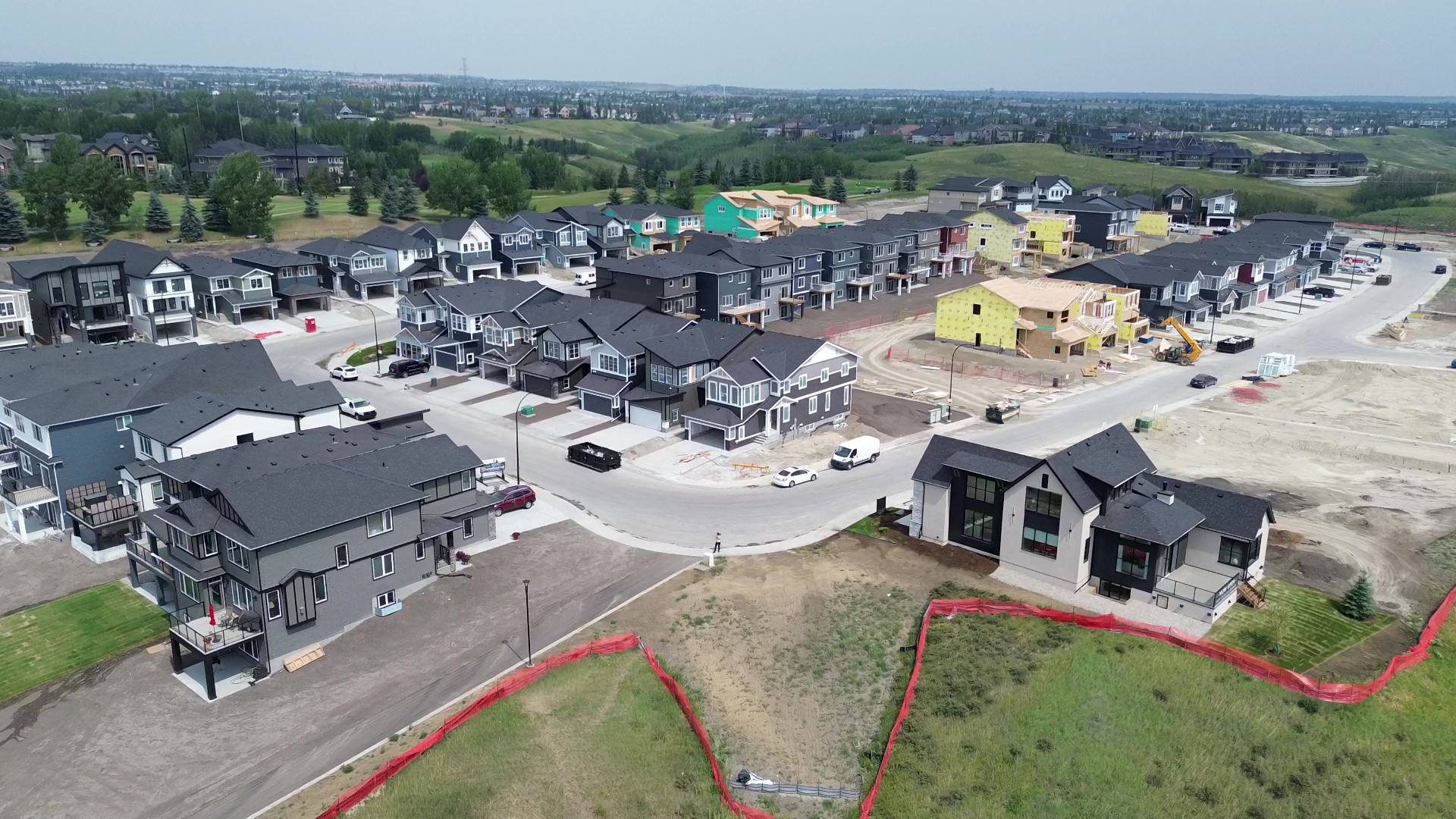Thinking about building a new construction home in Calgary? There’s nothing quite like the thrill of moving into a brand new home—everything is fresh, customized just the way you like it, and you’re the very first owner. But before you dive into the process, it’s important to understand both the benefits and the challenges that come with building a new home. With over two decades of experience helping clients build their dream homes, I’m here to walk you through some essential facts about new construction in Calgary.
1. The Joy of Customization: Make It Your Own
One of the biggest advantages of building a new home is the ability to customize it to your liking. From choosing the floor plan to picking out the finishes and colours, a new construction home offers a level of personalization that you simply can’t get with a resale home. Plus, there’s the undeniable appeal of that “new home smell” and the peace of mind knowing everything is brand new. But with customization comes responsibility—decisions about fixtures, finishes, and even appliances can quickly add up, so it’s important to stay mindful of your budget.
2. Understanding Warranties: Read the Fine Print
New homes come with warranties, which can provide peace of mind, but it’s crucial to understand exactly what’s covered. Most builders offer a one-year warranty that covers nearly everything, but not all warranties are created equal. Some issues, referred to as “seasonal deficiencies,” may not be addressed immediately depending on the time of year. It’s essential to read your warranty carefully and know what to expect, as dealing with warranty companies can sometimes be more challenging than anticipated.
3. Why You Need a Real Estate Agent: Protecting Your Interests
You might be wondering if you need a real estate agent when buying a new construction home directly from the builder. The answer is yes. While the builder is focused on delivering a product, they may not provide guidance on aspects like resale value or potential challenges during the build. A real estate agent with experience in new construction, like myself, can help you navigate the contract, point out potential issues, and advocate for your interests. Remember, the builder’s contracts are designed to protect them, not you, so having an expert on your side is invaluable.
4. The Realities of Builder Contracts: What You Need to Know
Builder contracts are typically written by the builder’s lawyer and can be complex. They often include clauses about “seasonal deficiencies” and strict payment terms. For example, once you receive your 45-day notice to pay, you’re expected to pay in full, or you could face hefty interest charges. Understanding these contracts is crucial to avoiding surprises down the road. With my experience, I can help you interpret these contracts and ensure you’re fully aware of what you’re signing up for.
5. Spec Homes vs. Custom Builds: Making the Right Choice
When working with a builder, you’ll generally have two options: buying a spec home or building from the ground up. Spec homes are pre-built or near completion and may offer limited customization options, but they can be a more affordable and quicker option. On the other hand, custom builds offer full control over design and finishes but require a lot of decisions and can sometimes go over budget. It’s important to consider which option best suits your needs and timeline.
6. Unexpected Costs: Budgeting Beyond the Build
When budgeting for a new home, don’t forget the additional costs that come after the build is complete. Landscaping, fencing, and window coverings are often not included in the initial price and can add up quickly. These are essential elements of your home’s exterior and interior that need to be factored into your budget to avoid surprises after move-in.
7. The Importance of Staying Involved: Be Your Own Advocate
Building a home is a partnership between you and the builder, and it’s important to stay involved throughout the process. Regularly visiting the site, getting to know the crew, and ensuring that the work is being done according to your specifications can prevent mistakes and ensure a smoother build. Don’t be afraid to ask questions and make sure the builder is meeting your expectations.
8. Considering Market Fluctuations: A Potential Risk
Building a home can take up to a year, and during that time, the real estate market can change. While Calgary’s market is currently strong, it’s important to remember that market conditions can shift. Some builders also have clauses that prevent you from flipping the home immediately after purchase, so if you’re building with the intention of selling, be sure to understand these restrictions and the potential risks involved.
9. Interest Rates and Financing: Lock in Your Rate
Interest rates can be unpredictable, and they may rise or fall during the time it takes to build your home. Fortunately, some lenders offer the option to lock in your rate, giving you peace of mind. It’s a good idea to explore these options early in the process to protect yourself against future rate increases.
10. Competing with Builders: Selling in a New Subdivision
If you’re building in a new subdivision, be aware that until the area is fully developed, you’ll be competing with the builder if you decide to sell. Builders may offer incentives or lower prices to attract buyers, which can impact the resale value of your home. This is an important consideration if you’re thinking about selling before the development is complete.
Ready to Build Your Dream Home? Building a new home in Calgary can be an exciting journey, but it’s not without its challenges. By working with an experienced real estate agent like myself, you can navigate these challenges with confidence and ensure that your new home meets all your expectations. Have questions or need guidance? I’m here to help from start to finish. And remember, working with an agent doesn’t cost you extra—builders cooperate with industry members, so my fee is already included in the price of the home.



